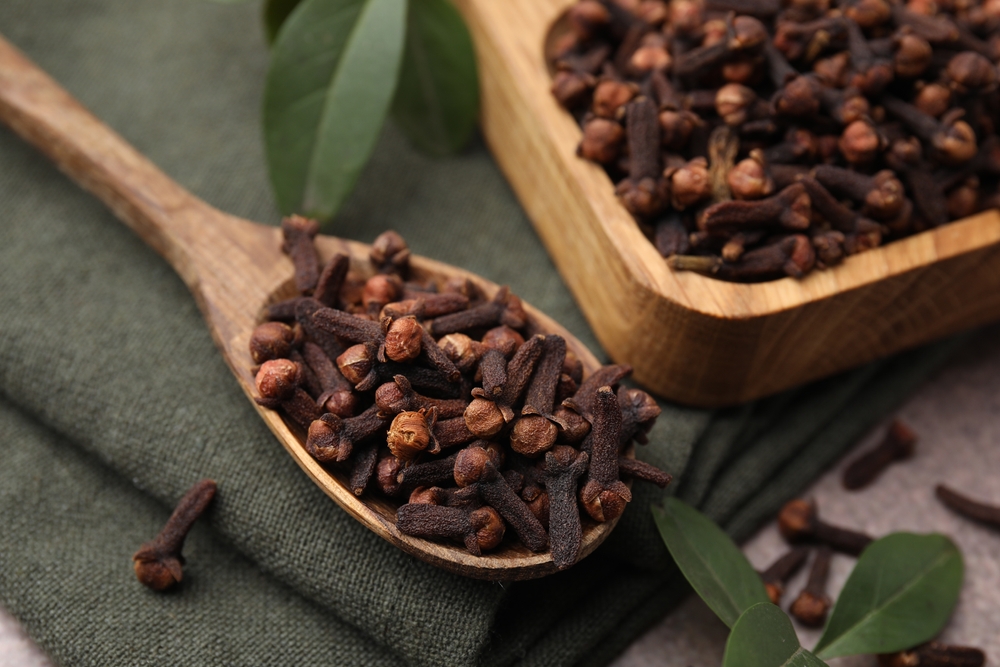The humble clove, known primarily for its distinctive warm flavor in holiday baking and traditional medicine cabinets, harbors remarkable secrets for promoting robust bone health throughout life. This aromatic flower bud from the evergreen clove tree contains a complex array of bioactive compounds that work synergistically to support bone formation, prevent bone loss, and enhance the body’s natural mechanisms for maintaining skeletal strength. Understanding how to harness clove’s bone-protective properties opens up exciting possibilities for natural bone health management.
Modern lifestyles often compromise bone health through sedentary behavior, processed food consumption, and inadequate nutrient absorption, making natural bone-supporting interventions increasingly valuable. Clove emerges as a particularly promising ally in this regard, offering multiple pathways for supporting bone health through its rich concentration of minerals, antioxidants, and specialized compounds that interact with bone metabolism in beneficial ways.
The science behind clove’s bone health benefits centers on its unique phytochemical profile, which includes eugenol, flavonoids, phenolic acids, and essential minerals that directly support bone formation and maintenance. These compounds work through various mechanisms, including reducing inflammation that can damage bone tissue, supporting calcium absorption and utilization, and promoting the activity of bone-building cells while inhibiting excessive bone breakdown.
Eugenol content provides powerful anti-inflammatory bone protection
The first remarkable aspect of clove’s bone health benefits stems from its high concentration of eugenol, a phenolic compound that comprises up to 90% of clove essential oil and demonstrates potent anti-inflammatory properties crucial for maintaining healthy bone tissue. Chronic inflammation represents one of the primary drivers of accelerated bone loss, particularly in aging individuals, making eugenol’s anti-inflammatory action particularly valuable for long-term bone health preservation.
Eugenol works by inhibiting inflammatory pathways that can trigger excessive bone resorption, the process by which old bone tissue is broken down. When inflammation remains unchecked, it can accelerate this breakdown process while simultaneously inhibiting the formation of new bone tissue, creating an imbalance that leads to decreased bone density over time. Regular consumption of clove provides a natural source of eugenol that helps maintain the delicate balance between bone formation and resorption.
The anti-inflammatory effects of eugenol extend beyond direct bone protection to include supporting overall systemic health that indirectly benefits bone maintenance. Chronic inflammation throughout the body can interfere with nutrient absorption, hormone function, and cellular repair processes that all contribute to optimal bone health. By addressing inflammation at multiple levels, clove consumption supports the complex network of factors that maintain strong, healthy bones.
Research indicates that eugenol’s anti-inflammatory action may be particularly beneficial for individuals with inflammatory conditions that affect bone health, such as rheumatoid arthritis or inflammatory bowel conditions that can interfere with nutrient absorption. The regular inclusion of clove in the diet provides a gentle, natural way to support anti-inflammatory processes that protect bone tissue from damage.
Mineral content supports essential bone building blocks
The second crucial way clove promotes bone health lies in its impressive mineral profile, which includes significant amounts of calcium, magnesium, phosphorus, and manganese – all essential minerals that serve as fundamental building blocks for strong, dense bone tissue. These minerals work together in complex ways to support both the formation of new bone and the maintenance of existing bone structure.
Calcium represents the most abundant mineral in bones, providing the primary structural component that gives bones their hardness and strength. While clove contains meaningful amounts of calcium, its true value lies in supporting the body’s ability to absorb and utilize calcium from all dietary sources more effectively. The other minerals present in clove create optimal conditions for calcium absorption and incorporation into bone tissue.
Magnesium plays equally important roles in bone health, participating in over 300 enzymatic reactions that support bone formation and maintenance. This mineral helps regulate calcium metabolism, supports vitamin D activation, and contributes to the formation of bone matrix proteins that provide structural support for calcium deposits. The magnesium content in clove helps ensure adequate levels of this often-deficient mineral.
Manganese serves as a cofactor for enzymes involved in bone formation and cartilage synthesis, making it essential for maintaining healthy joints and surrounding bone tissue. The manganese present in clove supports these enzymatic processes while also contributing to antioxidant systems that protect bone cells from oxidative damage that can impair their function.
Antioxidant compounds protect bone cells from damage
The third significant mechanism through which clove promotes bone health involves its rich concentration of antioxidant compounds that protect bone cells from oxidative stress and free radical damage that can impair bone formation and accelerate bone breakdown. These protective compounds include flavonoids, phenolic acids, and other plant chemicals that work together to maintain optimal cellular function within bone tissue.
Oxidative stress occurs when the body’s production of free radicals exceeds its ability to neutralize them with antioxidants, leading to cellular damage that can affect all body systems including bones. Bone cells, particularly the osteoblasts responsible for forming new bone tissue, are especially vulnerable to oxidative damage that can reduce their effectiveness and longevity.
The antioxidant compounds in clove help maintain the health and function of both osteoblasts (bone-building cells) and osteoclasts (bone-resorbing cells), ensuring that both processes function optimally to maintain healthy bone turnover. This balanced cellular function is essential for maintaining bone density and strength throughout life, particularly as natural antioxidant systems may become less efficient with aging.
Regular consumption of clove provides a consistent source of these protective antioxidants that can help counteract the daily oxidative stress that affects bone tissue. This protection becomes particularly important for individuals exposed to higher levels of oxidative stress through factors like smoking, excessive alcohol consumption, chronic stress, or environmental toxin exposure.
Circulatory support enhances nutrient delivery to bones
The fourth important way clove supports bone health relates to its ability to improve circulation and blood flow, ensuring that bone tissue receives adequate oxygen and nutrients necessary for optimal function and repair. Healthy circulation is essential for bone health because bone tissue, despite appearing static, is actually highly metabolically active and requires constant nutrient supply for ongoing maintenance and repair processes.
Clove contains compounds that support cardiovascular health and improve blood flow throughout the body, including to the small blood vessels that supply bone tissue. Enhanced circulation ensures that bone cells receive adequate oxygen, nutrients, and hormonal signals necessary for proper function while also facilitating the removal of metabolic waste products that could interfere with bone health.
Improved circulation also enhances the delivery of calcium and other bone-building nutrients to sites where they are needed most, maximizing the effectiveness of dietary mineral intake for bone health purposes. This improved nutrient delivery can be particularly beneficial for individuals with circulation issues or those recovering from bone injuries or fractures.
The circulatory benefits of clove may also support the health of cartilage and other joint tissues that work together with bones to maintain skeletal function. Healthy circulation to these tissues helps maintain joint flexibility and function while reducing the risk of conditions that could indirectly affect bone health.
Hormonal balance support protects against bone loss
The fifth mechanism through which clove promotes bone health involves its potential effects on hormonal balance, particularly in relation to hormones that directly influence bone metabolism such as estrogen, parathyroid hormone, and growth factors that regulate bone formation and resorption. Hormonal imbalances, particularly declining estrogen levels during menopause, represent major risk factors for accelerated bone loss.
Clove contains phytoestrogens and other plant compounds that may help modulate hormonal activity in ways that support bone health, though these effects are generally gentle and supportive rather than dramatically altering hormone levels. These compounds may help maintain more favorable hormonal environments for bone health, particularly during periods of hormonal transition.
The hormonal support provided by clove may be particularly beneficial for women approaching or experiencing menopause, when declining estrogen levels can significantly accelerate bone loss. While clove cannot replace hormone replacement therapy when medically indicated, it may provide gentle support that complements other bone health strategies during this vulnerable period.
Additionally, clove’s stress-reducing properties may indirectly support hormonal balance by helping to manage cortisol levels that can negatively impact bone health when chronically elevated. Chronic stress and high cortisol levels can interfere with bone formation while accelerating bone breakdown, making stress management an important component of comprehensive bone health strategies.
Practical methods for incorporating clove into daily routine
The sixth crucial aspect of using clove for bone health involves understanding practical methods for incorporating this powerful spice into daily routines in ways that maximize its bone-supporting benefits while ensuring safe and appropriate consumption levels. Regular, consistent intake provides the best results for bone health support, making it important to find sustainable approaches that fit individual preferences and lifestyles.
Ground clove can be easily incorporated into daily cooking and baking, adding both flavor and bone health benefits to a wide variety of dishes. A pinch of ground clove in morning coffee or tea provides a simple daily dose, while larger amounts can be used in cooking curries, stews, baked goods, and spice blends. Starting with small amounts allows individuals to adjust to clove’s distinctive flavor while gradually increasing intake.
Clove tea represents another effective method for regular consumption, prepared by steeping whole cloves or ground clove in hot water for several minutes. This preparation method extracts many of clove’s beneficial compounds while providing a warming, aromatic beverage that can be enjoyed throughout the day. Adding other bone-supportive ingredients like ginger or cinnamon can enhance both flavor and health benefits.
Clove essential oil, when used appropriately and in proper dilution, can provide concentrated benefits though it requires careful handling and should never be used undiluted or in large quantities. A drop or two in carrier oil can be used for topical application over areas of bone concern, though internal use of essential oils should only be undertaken with proper guidance and high-quality, food-grade oils.
Synergistic combinations enhance bone health benefits
The seventh important consideration for maximizing clove’s bone health benefits involves understanding how to combine clove with other bone-supporting nutrients and lifestyle practices that work synergistically to provide enhanced skeletal support. These combinations can amplify clove’s individual benefits while addressing multiple aspects of bone health simultaneously.
Combining clove with calcium-rich foods helps ensure adequate mineral availability for bone formation while clove’s other compounds support optimal calcium absorption and utilization. Pairing clove-spiced dishes with dairy products, leafy greens, or other calcium sources creates meals that provide comprehensive bone nutrition support.
Vitamin D represents another crucial partner for clove in bone health support, as this vitamin is essential for calcium absorption and bone mineralization. Ensuring adequate vitamin D status through sun exposure, supplementation, or fortified foods enhances the effectiveness of clove’s bone-supporting properties while addressing one of the most common nutritional deficiencies affecting bone health.
Regular weight-bearing exercise provides mechanical stimulation that encourages bone formation and strength, working synergistically with clove’s nutritional support to maintain and improve bone density. The anti-inflammatory effects of clove may also support exercise recovery and joint health, making it easier to maintain consistent physical activity that benefits bones.
Other bone-supportive spices and herbs like turmeric, ginger, and cinnamon can be combined with clove to create powerful anti-inflammatory and bone-protective spice blends that provide multiple mechanisms of skeletal support. These combinations also offer varied flavors that make it easier to consume bone-supporting compounds regularly without monotony.
Safety considerations and optimal usage guidelines
Understanding appropriate usage levels and safety considerations ensures that clove consumption for bone health remains both effective and safe for long-term use. While clove is generally recognized as safe when used as a culinary spice, concentrated forms require more careful attention to dosage and individual tolerance levels.
Culinary amounts of clove, typically ranging from a pinch to a quarter teaspoon daily, are considered safe for most individuals and provide meaningful bone health benefits when used consistently over time. These amounts allow individuals to experience clove’s benefits while minimizing any risk of adverse effects from excessive consumption.
Individuals taking blood-thinning medications should exercise caution with clove consumption, as eugenol may have mild anticoagulant effects that could potentially interact with these medications. Consulting with healthcare providers before significantly increasing clove intake helps ensure safe use for individuals with existing health conditions or medication regimens.
Pregnant and breastfeeding women should limit clove consumption to normal culinary amounts and avoid concentrated forms like essential oils or large supplemental doses. While culinary use is generally considered safe during pregnancy, excessive amounts could potentially cause complications and should be avoided.
People with sensitive digestive systems may need to start with very small amounts of clove and gradually increase intake as tolerance develops. The warming, stimulating nature of clove can occasionally cause digestive upset in sensitive individuals, making gradual introduction the safest approach for consistent long-term use.
Long-term bone health strategy integration
Incorporating clove into a comprehensive long-term bone health strategy maximizes its benefits while ensuring sustainable skeletal health throughout life. This integration involves understanding how clove fits into the broader picture of bone health maintenance and age-related bone loss prevention.
Consistent daily use over months and years provides the most significant bone health benefits, as the protective and supportive effects of clove’s compounds accumulate over time. Building clove consumption into established daily routines, such as morning beverages or regular meal preparation, helps ensure consistent intake that supports ongoing bone health processes.
Monitoring bone health through appropriate medical screening and assessment helps track the effectiveness of natural interventions like clove consumption while ensuring that additional medical interventions are implemented when necessary. Clove consumption can complement but should not replace medical care for serious bone health conditions.
The anti-aging and protective effects of clove consumption may become more pronounced with longer-term use, as consistent antioxidant and anti-inflammatory support helps maintain optimal bone cell function and overall skeletal health throughout the aging process. This makes clove consumption particularly valuable as a preventive strategy for maintaining bone health before significant deterioration occurs.
















